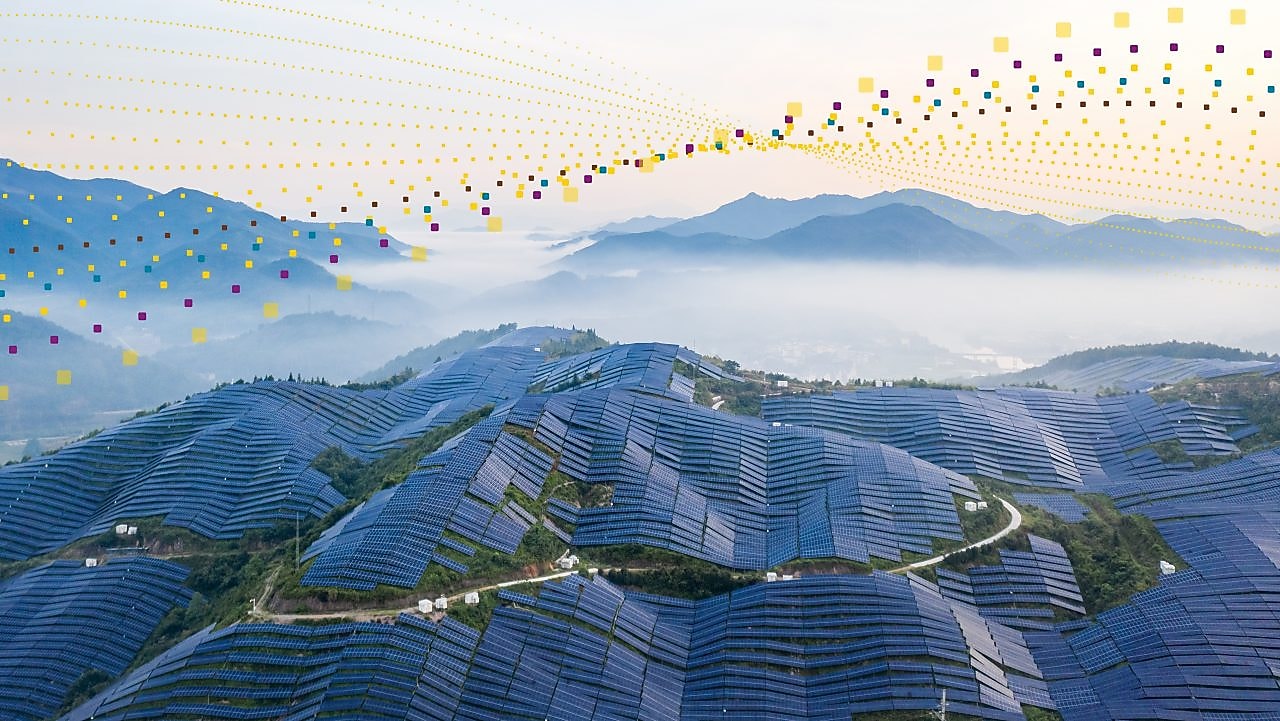Meet the Shell Scenarios team
Our Scenarios team has expertise in a wide range of fields including economics, politics, energy analysis, climate policy, socio-cultural change and competitive intelligence. The team’s work helps explore possible versions of the future by identifying drivers, uncertainties, enablers and constraints, and unearthing potential issues and their implications.
Meet the team

László Varró
Vice President Strategy, Insights & Scenarios
Laszlo has extensive experience in energy economics, policy and strategy. He studied economics at Corvinus University of Budapest, Hungary, and the University of Cambridge, UK.
He has worked as a regulator in Hungary’s electricity and gas markets and as Strategy Director for MOL Group, an independent oil and gas company. In 2011 he joined the International Energy Agency (IEA) as Head of Gas and Electricity Markets and led the IEA’s work on liquefied natural gas, gas supply security and electricity market design and regulation. He was appointed Chief Economist of the IEA in 2016, where he built a new team for energy investment analysis and was responsible for methodological support for all IEA policy work.
Laszlo joined Shell in 2021 where he leads the company’s analyses of macroeconomics, energy scenarios, climate policy and geopolitics.

Mallika Ishwaran
Chief Economist
Mallika is Shell’s Chief Economist. She advises on macroeconomic issues, economic trends, and related policy matters to shape Shell’s long-term scenario outlooks. She leads strategic engagements on energy transitions with national and city governments across the world, notably a multi-year collaboration with the Chinese government. Mallika also advises on Shell’s strategic policy and advocacy approach to support the company’s energy transition strategy. She sits on a range of external advisory boards.
Prior to joining Shell, she was Deputy Director at the Department for Environment, Food and Rural Affairs responsible for evidence and analysis across the environment, food, and green economy portfolio. She has held senior positions across the UK government, including at the Cabinet Office as Head of Policy Analysis for the 2009 G20 London Summit. Before that, Mallika worked in senior economics and policy roles in the USA.
Mallika holds Ph.D. and M.S degrees from Carnegie Mellon University, and a B.A. from St. Stephen's College, Delhi University.

David Hone
Chief Climate Change Adviser
David Hone works for Shell International Ltd and is the Chief Climate Change Adviser in the Shell Scenarios Team. He joined Shell in 1980 after graduating as a Chemical Engineer from the University of Adelaide in Australia. He has worked in refinery technology, oil trading and shipping areas for Shell.
David is a board member of the Center for Climate and Energy Solutions in Washington and the Global Carbon Capture and Storage Institute in Melbourne, and up until 2022 served on the International Emissions Trading Association (IETA) council, which he chaired from 2011-2013.
David is a regular climate blogger on his energy and climate change blog and is the author of a 2017 book on climate change, “Putting the Genie Back: Solving the Climate and Energy Dilemma”.

Geraldine Wessing
Chief Political Analyst
Geraldine advises on political trends and political risk. She leads the external environment assessments for Shell’s country reviews. She also leads, builds and develops country and global scenarios internally for Shell and in collaboration externally with academic, public and private organisations.
Geraldine is also the team’s in-house scenarios trainer, providing introductory as well as immersive scenarios training for colleagues new to the Scenarios and Shell Strategy teams.
She joined Shell’s Scenarios in 2013, after eight years in various functions at the company's Corporate Affairs departments. She studied business economics and history at the University of Leiden in the Netherlands and earned her master’s degree in international relations at King’s College London.

Peter Wood
Chief Energy Adviser
Peter is Shell’s Chief Energy Advisor. His team is responsible for worldwide energy analysis and long-term global energy scenarios, and advises Shell companies on issues such as pricing, global supply and demand, regulations, energy policy, markets and industry structure.
He joined Shell in 1997 and has held various positions in petroleum engineering and commercial and strategy functions in the Netherlands, Syria, Saudi Arabia, France and the USA. He has also been seconded to the International Energy Agency in Paris. Peter’s education started on a farm in the north of England and he later earned an MSci in physics from Durham University, UK, and an MBA from the Institute of Management Development, Switzerland.

Marcelo Espinoza
Manager Power Fundamentals
Marcelo is the manager of the team that performs long-term fundamental modelling and analysis of power systems. Based on detailed simulations of the supply-and-demand balance of electricity, he leads the work related to the long-term assessment of the power sector on multiple regions. With his team, he contributes to the creation and quantification of the Shell Scenarios and provides insights to the power business in Shell.
Marcelo joined Shell in 2020 bringing 15 years of experience in global power fundamentals modelling, asset valuation, renewable energy pricing and long-term scenario analysis. Prior to Shell, he was Director of Analysis and Pricing in Vestas (Denmark) and Chief Analyst in ENGIE (Belgium).
He holds a PhD in Electrical Engineering and a Master of Artificial Intelligence from the Katholieke Universiteit Leuven (Belgium); a Master in Applied Economics and a bachelor in Civil Engineering from the University of Chile.

Martin Haigh
Energy Fundamentals Manager
Martin is Senior Energy Adviser and leads the Energy Fundamentals team, which explores how energy demand is evolving in different countries and sectors.
Martin joined Shell in 2003 and has been a member of the Shell Scenarios team since 2004. He has led the development of Shell’s World Energy Model, which has underpinned the last three Shell scenario rounds and built on Shell’s 50-year history in scenario planning.
Martin works with many institutions, including MIT’s Climate Science team, the International Energy Agency and has participated in the IPCC Sixth Assessment focusing on energy systems modelling. He is a Fellow of the Royal Geographic Society.
Martin’s background is mathematics. He has experience in mathematical and economic modelling in the transport, telecom and energy industries.

Olivier Kenter
Head of Oil Market Analysis
Olivier leads Shell’s mid to long term Oil Market Analysis team responsible for global and regional market scenarios and pricing for crude & refined products, the refining and base chemicals industry, low carbon fuels and sectors like road transport, aviation and marine.
Olivier has 35 years of experience in the energy sector and has held various positions in technology, refining, LNG optimisation, trading & supply and commercial roles in the Netherlands and abroad. He holds a Chemical Engineering degree from Delft University of Technology.

Georgios Bonias
Senior Energy Analyst
Georgios is a Senior Energy Analyst in strategy and planning for Shell Scenarios. He is part of Shell’s World Energy Model team and focuses on generating insights for Shell strategy and businesses.
Georgios joined Shell in 2013. He has significant analytics and business experience having worked as Analytics Lead for Shell Lubricants Supply Chain before joining the Scenarios team in 2013. Previously, he worked for Procter & Gamble in various supply chain roles. He holds an MBA and a master’s degree in applied mathematics from the London School of Economics.

Peter Heijmans
Senior Economist
Peter took up the position of senior economist in 2008, where he is responsible for advising Shell on global economic developments and for analysis supporting strategy development, investment evaluations and business planning.
Before joining the Shell Scenarios team, Peter held various other positions at the Shell Asset Management Company, Saudi Aramco, the Institute of International Finance, the Ministry of Finance in the Netherlands and the European Commission in Brussels.

Thomas Akkerhuis
Senior Energy Advisor
Thomas is a member of the Energy Fundamentals team, where he primarily focuses on the demand side of the energy system. In his role, he connects modelling and strategy. In modelling, he identifies and develops ways in which energy analysis can be improved to better support decision making, especially through the use of scenarios. For strategy, he derives insights from data to help senior leaders navigate an uncertain future. He has presented widely to different audiences.
Thomas joined Shell in 2017. He holds an MSc in Econometrics, and in his PhD thesis he studied topics in industrial statistics. Before joining Shell, he taught mathematics, statistics and operations management. While his academic work centred on the research and teaching of data and modelling fundamentals, he continues to expand his expertise and knowledge through courses in deep learning, AI, strategy, and leadership.

Richard Baker
Senior Energy Adviser
Richard is an Energy Strategist with 15 years of experience across the global energy industry. Currently, he serves as a Senior Energy Advisor for Shell Scenarios, where he leads a team of analysts and developers within the Energy Fundamentals group. In this role, he applies deep expertise on the global energy system and state-of-the-art energy supply models to help develop credible pathways for the Energy Transition.
His previously held roles at Shell in M&A and Corporate Strategy while earlier in his career, as a Geologist for BG Group, he gained extensive international experience through expatriate assignments in Brazil and Australia, working across Exploration, Operations, and Production. Richard holds a PhD from Imperial College, London, and an undergraduate degree in Earth Sciences from University College, Oxford.
Shell Scenarios team
The Shell Scenarios team is multi-disciplinary with expertise in economics, political analysis, energy analysis, socio-cultural change, climate, scenario building and communications.

Definitions and Cautionary note
Definitions and Cautionary note
WARNING - UNCERTAINTIES AHEAD: Shell’s scenarios are not intended to be projections or forecasts of the future. Shell’s scenarios, including the scenarios contained in this content, are not Shell’s strategy or business plan. They are designed to stretch management to consider even events that may only be remotely possible. Scenarios, therefore, are not intended to be predictions of likely future events or outcomes and investors should not rely on them when making an investment decision with regard to Shell plc securities When developing Shell’s strategy, our scenarios are one of many variables that we consider. Ultimately, whether society meets its goal to decarbonise is not within Shell’s control, only governments can create the framework necessary for society to meet the Paris Agreement’s goals. The Sky 2050 scenario is a normative scenario, which means we assume that society meets the most ambitious goal of the Paris agreement: limiting the increase in global average temperatures to 1.5°C above pre-industrial levels this century and then we work back in presenting how this may occur. Our assumptions, for the Sky 2050 are based on what we believe are technically possible as of today and not necessarily plausible. Our Archipelagos scenario is an explorative scenario, which means we do not assume the final outcome rather we use plausible assumptions based on the data to determine what we believe will occur in the future. Of course, there is a range of possible paths in detail that society could take to achieve this goal. Although achieving the goal of the Paris Agreement and the future depicted in Sky 2050 while maintaining a growing global economy will be extremely challenging, today there is still a technically possible path. However, we believe the window for success is quickly closing.
The companies in which Shell plc directly and indirectly owns investments are separate legal entities. In this content “Shell”, “Shell Group” and “Group” are sometimes used for convenience where references are made to Shell plc and its subsidiaries in general. Likewise, the words “we”, “us” and “our” are also used to refer to Shell plc and its subsidiaries in general or to those who work for them. These terms are also used where no useful purpose is served by identifying the particular entity or entities. ‘‘Subsidiaries’’, “Shell subsidiaries” and “Shell companies” as used in this content refer to entities over which Shell plc either directly or indirectly has control. The term “joint venture”, “joint operations”, “joint arrangements”, and “associates” may also be used to refer to a commercial arrangement in which Shell has a direct or indirect ownership interest with one or more parties. The term “Shell interest” is used for convenience to indicate the direct and/or indirect ownership interest held by Shell in an entity or unincorporated joint arrangement, after exclusion of all third-party interest.
Forward-Looking Statements
This content contains forward-looking statements (within the meaning of the U.S. Private Securities Litigation Reform Act of 1995) concerning the financial condition, results of operations and businesses of Shell. All statements other than statements of historical fact are, or may be deemed to be, forward-looking statements. Forward-looking statements are statements of future expectations that are based on management’s current expectations and assumptions and involve known and unknown risks and uncertainties that could cause actual results, performance or events to differ materially from those expressed or implied in these statements. Forward-looking statements include, among other things, statements concerning the potential exposure of Shell to market risks and statements expressing management’s expectations, beliefs, estimates, forecasts, projections and assumptions. These forward-looking statements are identified by their use of terms and phrases such as “aim”; “ambition”; ‘‘anticipate’’; ‘‘believe’’; “commit”; “commitment”; ‘‘could’’; ‘‘estimate’’; ‘‘expect’’; ‘‘goals’’; ‘‘intend’’; ‘‘may’’; “milestones”; ‘‘objectives’’; ‘‘outlook’’; ‘‘plan’’; ‘‘probably’’; ‘‘project’’; ‘‘risks’’; “schedule”; ‘‘seek’’; ‘‘should’’; ‘‘target’’; ‘‘will’’; “would” and similar terms and phrases. There are a number of factors that could affect the future operations of Shell and could cause those results to differ materially from those expressed in the forward-looking statements included in this content, including (without limitation): (a) price fluctuations in crude oil and natural gas; (b) changes in demand for Shell’s products; (c) currency fluctuations; (d) drilling and production results; (e) reserves estimates; (f) loss of market share and industry competition; (g) environmental and physical risks; (h) risks associated with the identification of suitable potential acquisition properties and targets, and successful negotiation and completion of such transactions; (i) the risk of doing business in developing countries and countries subject to international sanctions; (j) legislative, judicial, fiscal and regulatory developments including regulatory measures addressing climate change; (k) economic and financial market conditions in various countries and regions; (l) political risks, including the risks of expropriation and renegotiation of the terms of contracts with governmental entities, delays or advancements in the approval of projects and delays in the reimbursement for shared costs; (m) risks associated with the impact of pandemics, such as the COVID-19 (coronavirus) outbreak, regional conflicts, such as the Russia-Ukraine war, and a significant cybersecurity breach; and (n) changes in trading conditions. No assurance is provided that future dividend payments will match or exceed previous dividend payments. All forward-looking statements contained in this content are expressly qualified in their entirety by the cautionary statements contained or referred to in this section. Readers should not place undue reliance on forward-looking statements. Additional risk factors that may affect future results are contained in Shell plc’s Form 20-F for the year ended December 31, 2023 (available at www.shell.com/investors/news-and-filings/sec-filings.html and www.sec.gov). These risk factors also expressly qualify all forward-looking statements contained in this content and should be considered by the reader. Each forward-looking statement speaks only as of the date of this content March 21, 2023. Neither Shell plc nor any of its subsidiaries undertake any obligation to publicly update or revise any forward-looking statement as a result of new information, future events or other information. In light of these risks, results could differ materially from those stated, implied or inferred from the forward-looking statements contained in this content.
Shell’s Net Carbon Intensity
Also, in this content we may refer to Shell’s “Net Carbon Intensity” (NCI), which includes Shell’s carbon emissions from the production of our energy products, our suppliers’ carbon emissions in supplying energy for that production and our customers’ carbon emissions associated with their use of the energy products we sell. Shell’s NCI also includes the emissions associated with the production and use of energy products produced by others which Shell purchases for resale. Shell only controls its own emissions. The use of the terms Shell’s “Net Carbon Intensity” or NCI are for convenience only and not intended to suggest these emissions are those of Shell plc or its subsidiaries.
Shell’s net-zero emissions target
Shell’s operating plan, outlook and budgets are forecasted for a ten-year period and are updated every year. They reflect the current economic environment and what we can reasonably expect to see over the next ten years. Accordingly, they reflect our Scope 1, Scope 2 and NCI targets over the next ten years. However, Shell’s operating plans cannot reflect our 2050 net-zero emissions target, as this target is currently outside our planning period. In the future, as society moves towards net-zero emissions, we expect Shell’s operating plans to reflect this movement. However, if society is not net zero in 2050, as of today, there would be significant risk that Shell may not meet this target.
Forward-Looking non-GAAP measures
This content may contain certain forward-looking non-GAAP measures such as [cash capital expenditure] and [divestments]. We are unable to provide a reconciliation of these forward-looking non-GAAP measures to the most comparable GAAP financial measures because certain information needed to reconcile those non-GAAP measures to the most comparable GAAP financial measures is dependent on future events some of which are outside the control of Shell, such as oil and gas prices, interest rates and exchange rates. Moreover, estimating such GAAP measures with the required precision necessary to provide a meaningful reconciliation is extremely difficult and could not be accomplished without unreasonable effort. Non-GAAP measures in respect of future periods which cannot be reconciled to the most comparable GAAP financial measure are calculated in a manner which is consistent with the accounting policies applied in Shell plc’s consolidated financial statements.
The contents of websites referred to in this content do not form part of this content.
We may have used certain terms, such as resources, in this content that the United States Securities and Exchange Commission (SEC) strictly prohibits us from including in our filings with the SEC. Investors are urged to consider closely the disclosure in our Form 20-F, File No 1-32575, available on the SEC website www.sec.gov.


